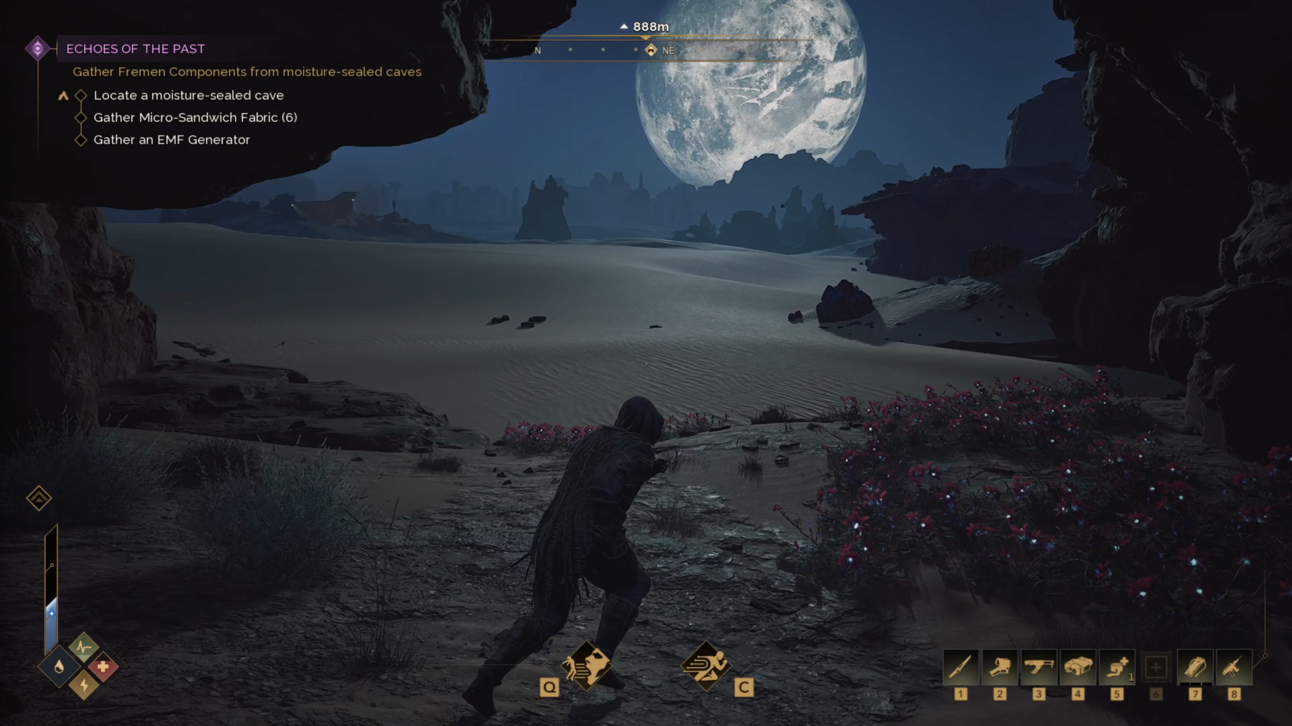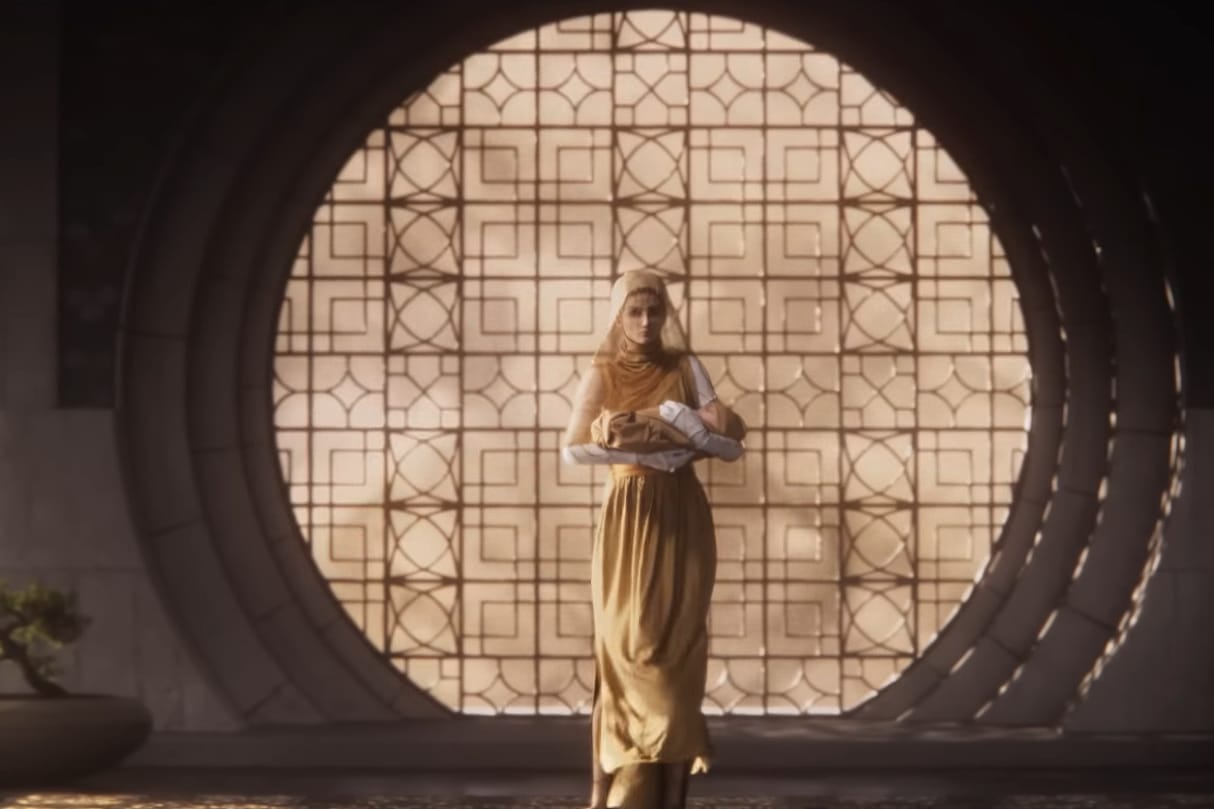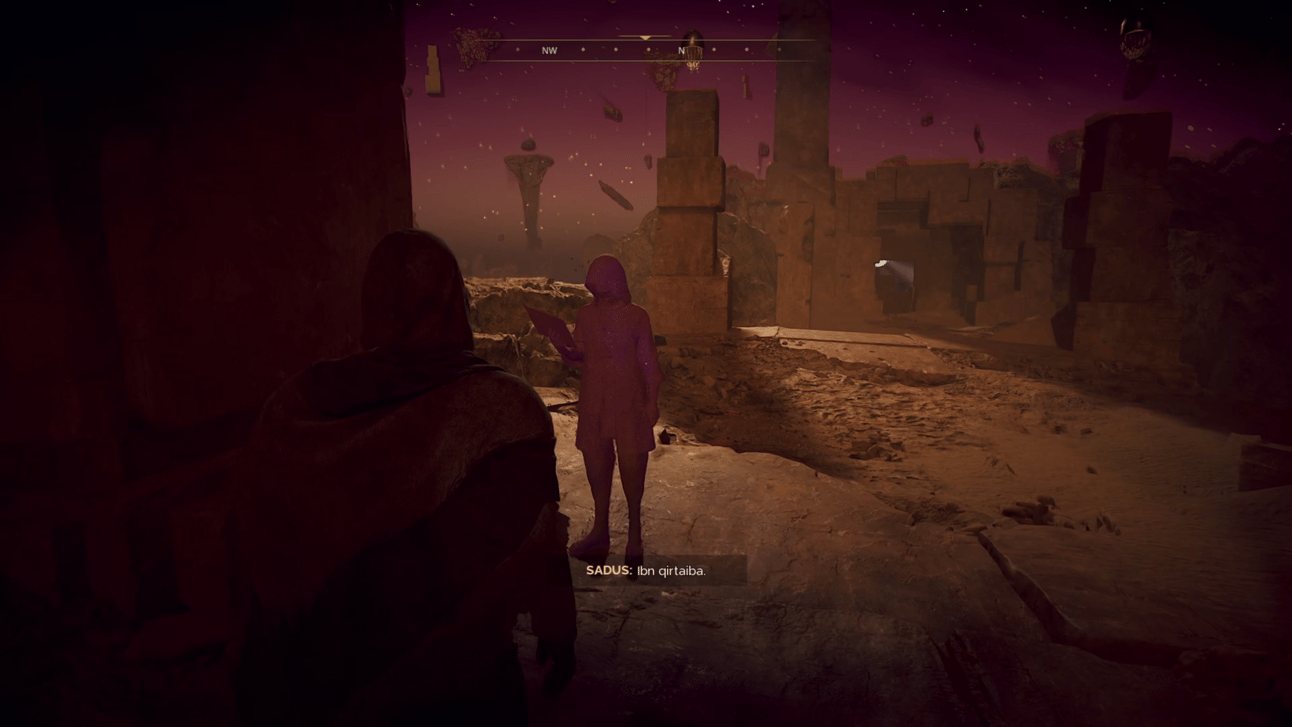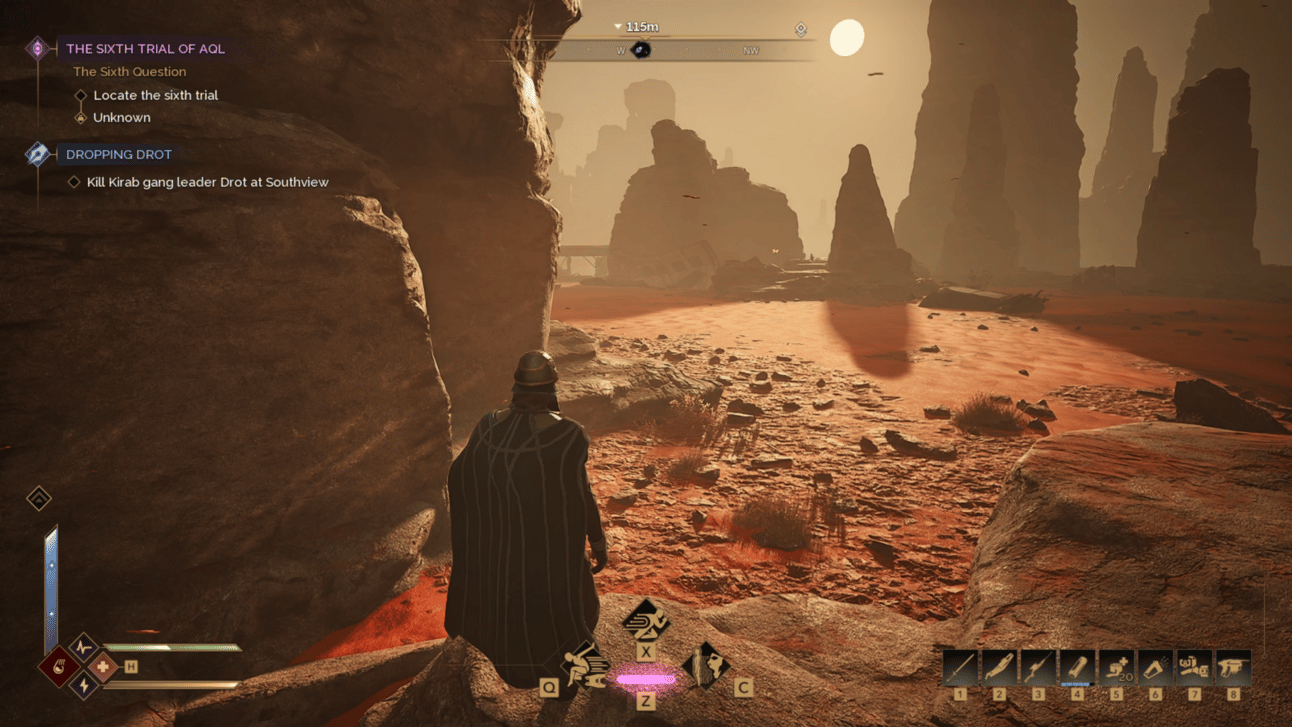
I assume I was one of the very few people who decided to pay for the experience only because it was Dune-related.
Since I never played a survival game, nor an MMO before, I clicked 'pay' with a sinking feeling that this game might try to capitalize on Dune's recent popularity and would be content to slap a few pieces of Arrakis onto something that isn't really Dune at its core.
Boy, was I wrong.
Here are the links to the first four episodes of my Dune: Awakening lore review:
1) Let’s meet the ALTERNATE Dune
2) Canonically CORRECT tools and resources
3) Sprinting like the GOD EMPEROR of Dune
4) The first trial of AQL
If you completely missed the game or the news around it, Dune: Awakening drops you into an alternate timeline where Jessica had a daughter instead of Paul.
It's not a multiverse situation - we're actually in one of Paul's spice visions where he imagines what would've happened if he'd been a girl.

Apparently, Jessica would've been trained as a truthsayer, so she would've prevented Yueh's betrayal, which would've meant that the kanly between Atreides and Harkonnen would've escalated into a war of assassins, which in turn would've required the Emperor to send in the Sardaukar to ensure spice production remains stable, and the Sardaukar would've (seemingly) eradicated the Fremen.
Now the player character is sent to Arrakis by a Bene Gesserit Reverend Mother to find the Fremen, so we can assume they're still around, just hiding.
Whether you agree with how this alternate timeline unfolds or not, I applaud the idea.
I don't think that the developers could've provided an authentic experience in the existing universe without someone (like me) nitpicking about canon and the story's impact on the lore, etc.
But the game's story being Paul's spice-feverdream freed them to do what they wanted. And while some might've jumped to do whatever, Funcom delivered a surprisingly respectful deep-dive into Herbert's universe that even manages to expand on the lore without trampling all over it.
After 60 hours of gameplay, here's why I'm impressed.
(And no, this is not sponsored content.)
The real standout for me is how they've expanded the test of Aql from a throwaway book reference into a full narrative framework.
"We'll give you a name, manling," Stilgar said, "in the time of the mihna, at the test of aql."
— Dune [1965]
What is the test of Aql? How does it look like? Herbert gave us exactly one extra detail:
AQL: the test of reason. Originally, the "Seven Mystic Questions" beginning: "Who is it that thinks?"
— Terminology of the Imperium, Dune [1965]
Dune: Awakening runs with this, creating seven trials that introduce Fremen life and Fremen philosophy while staying true to the original concept. Their answer to the first mystic question is "those who suffer" - and the tie it directly into the history of the Zensunni Wanderers. Chef's kiss.
There's references to Harmonthep (the sixth stop in their wandering), the denial of Hajj, mixed in with the Fremen maxim of "Never to forgive! Never to forget!"
In your own spice dreams (which are, remember, part of Paul's spice dream), you are treated as a wali by one of the sadus, who starts every lecture with Ibn Qirtaiba and seems to be quoting from the Kitab al-Ibar before finishing with bi-la kaifa.

I was so happy that we did the Dictionary of Dune just a few weeks ago.
And again, expanding on the canon, while we didn't get a Lisan al-Gaib, the player's character might be the Alshaahid Akadhib. Who or what that is…? I need to progress more with the story. It translates to the witness of lies.
As much as possible, the tech stays faithful to the canon.
We got everything from fremkits for survival, to pentashields on spaceships, to micro-sandwich fabric as a component for stillsuits. Even moisture seals - or "door seals" canonically - serve their intended purpose of sealing Fremen cave camps.
Cielago bats (but also some birds) are carrying distrans messages and maula-pistols are shooting darts. Oh, and since maula means slave in Fremen, your original attire of an imperial prisoner gets dubbed a maula outfit.
There was even a point where the game put my knowledge to shame. The first time I picked up a cutteray to cut through some metal, I kinda assumed it's a generic video game mining tool. But I double-checked the term on a hunch and was pleasantly surprised to find that it's mentioned in both Dune and Dune: Messiah. It's basically a lasgun used for "digging underground catch basins and hidden windtraps."
Being ignorant has never felt this good.
Character creation gets you right into it. Homeworld options include the obvious Caladan and Giedi Prime, but also Ix and Chusuk - that's the music planet where Gurney got his balliset after the battle of Arrakeen. The caste system properly reflects the Faufreluches with pyons and bondsmen.
And speaking of the society of Dune, I loved how you claim land with a "sub-fief" console - because you're not just grabbing land but receiving it as a grant from the Emperor, complete with obligations. As in, you need to pay taxes.
Holtzman technologies receive proper attention - the game explicitly states that using shields in the open desert is "foolhardy" because they enrage sandworms, and one of the loading screens warns that suspensors have a similar effect.
Even obscure references like Arsunt - a location mentioned exactly once in the core canon - are included.
You might've noticed that I'm quite impressed with how much Dune there is in Dune: Awakening.
And while the game mostly respects the lore, there are certainly some elements either stretched or misapplied.
Like calling the Bene Gesserit "mystical" in the intro cinematic, which of course misses Herbert's entire point about their abilities being trained human talents rather than supernatural powers. What makes the description even more egregious is that it's coming from Paul Atreides's narration, who would of course know all of this firsthand.
Adab receives interesting treatment that broadens its canonical meaning. In the books, it's specifically the "demanding memory that comes upon you of itself," typically associated with Bene Gesserit experiences. The game uses it more generally for any kind of sudden recognition or memory, which isn't wrong but still feels weird.
And there's also the grammatical question mark around Sadus versus Sadu - the Sanskrit root suggests singular usage, but the game treats it as a proper name.
All of these are minor quibbles compared to how much is done right here.
Awakening knows its adaptation history and plays with audience expectations accordingly. The whole theme of "sleepers" and "awakening" is obviously a nod to Lynch's movie, despite lacking any roots in the books.
The overall design aligns with Villeneuve's movies, which also includes things like the warped English of the Sardaukar.
Some cutscenes push into deliberate fan service territory. That Gom Jabbar scene in the opening cinematic gets copied almost shot-for-shot from Villeneuve's film, complete with dialogue and staging. And later, diving into a sandstorm with an ornithopter mirrors Paul and Jessica's escape in Dune: Part One.
Having said that, I did appreciate that the opening screen of the game includes the first sentence of the book: "A beginning is the time for taking the most delicate care that the balances are correct."

Although I was sceptical going in, I love the game because it treats Dune as a living system rather than a collection of cool names to sprinkle around.
The canonical elements feel natural and functional, while the new additions - like the expanded Trial of Aql- enhance the existing lore.
Can we please have more things like this?